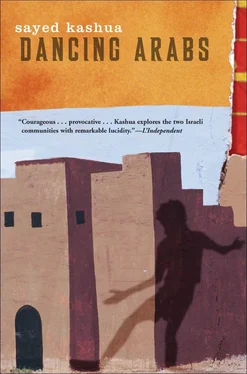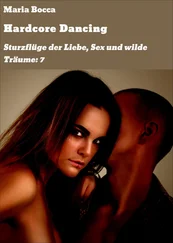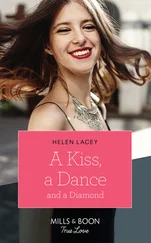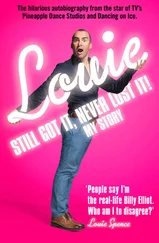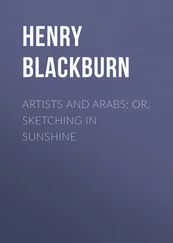My wife and brother are back, carrying two bags. My wife looks disappointed. She wanted to get back before Fatma arrived, and now the guest will know that we shopped specially for her. A bottle of Coke is sticking out of the bag, and Fatma says, “Why all the fuss? I don’t want anything. I don’t drink Coke.” She shakes my brother’s hand and says he’s as good-looking as his father once was.
My wife brings out some glasses and pours Coke for the guests. She arranges some bananas, oranges, and apples in a dish. She pours some peanuts out of a brown paper bag and serves them. She clears away the economy pack of wipes and the breast pump and places the tray near Fatma. “You have an adorable baby. She looks like you,” Fatma says, and my wife insists it isn’t true.
The couches are all taken by now. Father and Fatma are using two seats, and my brother and wife another two. My mother remains standing with the baby and I pull up a chair and sit opposite Father and Fatma, who are trying not to exchange glances. “Since when have you known each other?” I ask, and exhale some smoke.
Everyone looks at me, as if I’ve asked a taboo question. In our family, people don’t talk. We’re experts at concealing details.
“Since when?” Fatma repeats. “I’ll tell you since when.” My father is still preoccupied with his stomach, pulling it in and running his hand over his shirt, as if trying to make it smoother. “I was a young teacher,” Fatma says. “I was teaching in a school in the Et-Tur neighborhood, and after the war in ’sixty-seven they took all the teachers to visit the university. That’s where I saw your father. That’s how we met.”
“And then what? How did you start talking?” I ask again, and my mother says she’s not going to vote in the next elections. My father says that he thinks the Arabs owe it to themselves to vote. Fatma doesn’t have the right to vote anyhow, because she’s not a citizen. But even if she was, she wouldn’t take part in elections for the Israeli Knesset. Fatma has stayed thin, she’s stayed single, living with her brother and the family. Everyone’s in the tourism business. They have a lot of money, a lot of buses. This week, they bought a huge house for one of their nephews. Fatma likes to buy her clothes abroad, preferably in London. She has money. She’s vice principal of a school in Et-Tur. She clears seven thousand, and she has no use for the money. Thirty-two years now she’s been teaching, two years more than my mother.
“How exactly did you meet?” I ask again, trying to use the opportunity to find out about Fatma and her letters.
“I was the best-looking guy at the university,” my father says, and forces a smile, but Mother frowns. Father says he and Fatma wanted to get married. Fatma cuts him short and says it’s lucky they didn’t. “Look how much weight you’ve gained,” she says, trying to be a friend of the family. “How do you let him get away with it?” she asks Mother, and Mother has nothing to say. She feels unwanted and makes do with a nod.
Father says the reason they didn’t get married was that he got stuck. First he spent a few years in jail, and then under house arrest, and he didn’t leave the village. Mother breaks into his story and reminds herself out loud that she still has some cooking to do. That’s it; she doesn’t want to stay with the baby any longer. She’s sorry she ever agreed to Father’s condition. She wants to go home. The baby’s getting sleepy anyway. Everyone realizes it’s time to leave. Fatma says it’s Friday and the stores close early, and she still has to buy a birthday present for her niece.
The baby’s fallen asleep. I’ll have another cigarette and then I’ll go back to sleep. I’m on duty at the bar tonight too. I ask my wife if she’s seen my lighter, and she says that because of me we looked like beggars. It wasn’t enough that the house was filthy because I’m so lazy and primitive, it didn’t even occur to me to wash my face and change out of my sweats. She doesn’t know where my lighter is, but she thinks Fatma is pretty and knows how to take care of herself. “What’s the real story between her and your father?” she asks, and I tell her my father’s stolen my lighter.
There’s No Beer in Saudi Arabia
The situation is really pissing me off. I’d like to be an Arab college graduate who works as a garbage collector so I can badmouth the State. But I never did make it through college, and the truth is that my job isn’t that bad. I’m not really suffering at work. I’d like to be a dishwasher at some restaurant, to pray in a mosque, to be poor. I’d like the sewage to overflow from the toilet into the kitchen, and I’d like for a donkey to be tied to the fig tree, and for little barefoot kids to be shouting all the time, and for my wife to wear a veil.
Everyone has been turning to religion except my father. Every Ramadan, my grandmother launches a rebellion against the infidels. She tries to force my father to fast, and each time he swears he will, but he doesn’t. When we were little, Grandma would count the cigarettes in Father’s pack, to see if he’d smoked during the fast. When he didn’t fast, she staged a hunger strike in protest, refusing to eat the last meal. Every Ramadan, she tries again, but father refuses to behave himself. She says that when he was little he did wash and pray and go to the mosque every Friday. It’s all on account of my mother. Men always follows their wives’ example. My mother wants to be pretty; she’s afraid if she wears a head scarf she’ll look old. She doesn’t understand that faith in God makes your face beautiful and smooth.
I think about God a lot lately. It’s easy, not like with the Jews. All you need to do to be religious is to wash and pray. You can go on living in the same house, and you don’t have to separate from your family. In Moslem families, an Imam and a prostitute can live together in the same house.
I don’t remember how to pray anymore. I used to go to the mosque, but that was a long time ago. Our religion teacher would give perfect grades to all students who went to the mosque. I went there to pray until I had my shoes stolen. I searched through the piles for hours, but they weren’t there. I started crying and waited for everyone to take their shoes. Finally the only thing left was an ugly pair of plastic thongs. I didn’t want to wear those, so I had to walk home barefoot.
Adel has returned to religion. The perestroika got to him. He stopped being a communist and slowly discovered religion. He stayed in Jerusalem when he finished studying. At first he had a Russian girlfriend, but when Gorbachev took over, he left her. He said a Jew remains a Jew. He thought about it and discovered that, if war broke out, he wouldn’t want to save his girlfriend. Eventually, he married a Christian girl, because it says that anyone who persuades a single person to join Islam has a sure place in heaven. Adel took on a particularly tough case, a Christian girl from Nazareth, who sported the biggest cross at the university. Her name is Susie, no less. Her parents refused to go along with the idea of her marrying some Moslem fellah, so Adel and Susie waited until her father died of a heart attack, and then they got married.
Adel is living a comfortable life. He’s a lawyer. He has a new car and three kids. My wife gets along with his wife, so we’ve become friends again. He doesn’t drink anymore and never skips his prayers. Whenever we meet, he tells me how wonderful Islam is. He explains that only prayer will help me cope with my problems, and he prays that God will help me to believe. Adel knows I drink, he knows I don’t fast, and yet he and his wife invite us for the last meal before the fast at least twice each Ramadan. Susie converted to Islam. She says she’s become convinced that Islam is the right religion and Mohammed is the true Prophet. She prays, she fasts on Ramadan, and the only holidays she celebrates are the Moslem ones. She can’t believe she ever sang in a church choir.
Читать дальше
